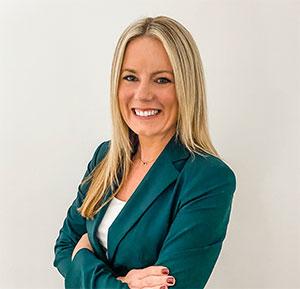This past fall, the Business Roundtable, an association of CEOs from more than 200 of the largest corporations in the U.S., released a new Statement of Purpose that broadens the definition of corporate success beyond maximizing stakeholder value.
The statement indicates the need for corporate organizations to shift away from a singular focus on shareholder profit toward an emphasis on fulfillment of all stakeholders, including customers, employees, suppliers and communities.
In 2009, the meetings and events industry experienced the effects of short-sighted financial decisions made by company executives who were seeking to protect short-term profits and their personal reputations, which included cutting many meetings and events.
At Fortune’s MPW International Summit in Toronto, Indra Nooyi, former CEO of PepsiCo stated, “All CEOs should run the company for the duration of the company, not the duration of the CEO. My success should be judged on how well my successor does, not just how well I did.” As we look toward the future in the meetings and events industry, we consider how leaders like Nooyi can impact the way corporations respond to changes in business moving forward.
The current conversation about shifts in corporate strategy is great news for meetings and events professionals. Through meetings and events, companies create brand experiences for stakeholders that leave a lasting impression. Corporations and their leaders will continue to rely on meetings and events to accomplish the objectives set forth in the Statement of Purpose.
We Know Meetings & Events Will Continue
Despite predictions of a recession, the fact that corporations are rethinking ways to ensure stakeholder satisfaction is favorable for the meetings and events industry. Human to human connection is vital to business success. The Business Roundtable laid out several key commitments, which highlight and reinforce the value of meetings and events.
Delivering Value to Customers
User conferences are a perfect example of delivering value. Salesforce Dreamforce is perhaps the most talked about user conference of all time. Salesforce Dreamforce provides technology, educational opportunities, community building and an overall brand experience that continuously links loyal customers to Salesforce.
Investing in Employees
As Henry Ford said, “The only thing worse than training your employees and having them leave is not training them and having them stay.” Corporations endorse the value of employee training and education. According to the Amex Global Meetings and Events Forecast, internal team and training meetings account for 30% of meetings in North America. Onboarding, training and engaging employees accounts for a considerable volume of meetings.
Dealing Fairly and Ethically with Suppliers
Events give companies the opportunity to thank suppliers, give back and nurture ongoing relationships. Maritz Global Events honors partners in the hospitality industry annually with Supplier of the Year Awards at Maritz Collaborative. Companies in every industry recognize that successful partnerships are rooted in amazing service to clients and can lead to mutually beneficial business relationships.
Giving Back to Local Communities
Events bring people together and allow attendees to give back to local communities wherever events are hosted. Cetera Financial Group has a philanthropy quantitative called “Caring Cetera,” which focuses on improving the lives of youth around the U.S. Colleen Connor, Vice President of Conferences at Cetera, told us at this year’s national conference in Denver, Cetera partnered with Youth on Record, a non-profit organization that empowers teens in some of Denver’s most vulnerable communities to make life choices that positively impact their future. This partnership showcases the enormous impact companies can make through events, which leave a lasting, heartfelt impression on attendees and communities.
These are just a few examples of how companies already use meetings and events for the benefit of their stakeholders. As event professionals, companies will continue to rely on us to help maximize stakeholder value through conferences and meetings. As priorities shift, we should refine our own organizational strategies so that we can meet the demands of our customers.
We know that meetings and events will continue to be highly valuable to our customers. As business practices evolve, we will continue to innovate so that we can deliver the best possible services and products possible.



